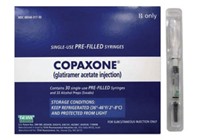Advertisement
Grab your lab coat. Let's get started
Welcome!
Welcome!
Create an account below to get 6 C&EN articles per month, receive newsletters and more - all free.
It seems this is your first time logging in online. Please enter the following information to continue.
As an ACS member you automatically get access to this site. All we need is few more details to create your reading experience.
Not you? Sign in with a different account.
Not you? Sign in with a different account.
ERROR 1
ERROR 1
ERROR 2
ERROR 2
ERROR 2
ERROR 2
ERROR 2
Password and Confirm password must match.
If you have an ACS member number, please enter it here so we can link this account to your membership. (optional)
ERROR 2
ACS values your privacy. By submitting your information, you are gaining access to C&EN and subscribing to our weekly newsletter. We use the information you provide to make your reading experience better, and we will never sell your data to third party members.
More reactions from readers
Monsanto Patent Case
Regarding the Government Concentrate "Supreme Court Backs Monsanto in Patent Case," the Supreme Court's refusal to review Monsanto's patent case is described as upholding a lower court's decision in Monsanto's favor (C&EN, Jan. 14, page 36). While the outcome is certainly welcome news for Monsanto, I note a frequent misconception in describing the Supreme Court's refusal to hear an "appeal." This error is common among attorneys as well and is worth a brief explanation.
In general, an "appeal" to the Supreme Court (called a petition for writ of certiorari) is discretionary. That is, the Court has complete discretion to either grant or deny any petition. Of the 7,000 to 8,000 petitions filed each year, the Court agrees to hear only about 70 cases. All the rest—about 99%—are denied. A denial does not mean that the Court necessarily agrees with the lower court's ruling.
In the words of the Supreme Court itself, "[t]he denial of a writ of certiorari imports no expression of opinion upon the merits of the case, as the bar has been told many times," United States v. Carver, 260 U.S. 482, 490 (1923).
In the Monsanto case, the Supreme Court may have simply believed that the case did not address an important enough issue compared with other pending petitions. Other times, the Court will follow the recommendation of the solicitor general of the U.S. Whatever the particular reason for denial—and it is impossible to know—the final outcome is indeed an excellent result for Monsanto.
Nevertheless, it is inaccurate to describe the denial of the petition as a ruling in favor of Monsanto or as an affirmation of the lower court's decision. The error is not major but is significant enough and, perhaps, similar to the erroneous chemical structure featured in the Gerty Cori stamp that was reported by C&EN (Jan. 28, page 104).
Strong, valid patent protection is important for the continued success of U.S. innovation. It is encouraging to read C&EN's coverage of important patent cases. Moreover, one of the issues in the Monsanto case???the doctrine of patent exhaustion???is currently being considered by the Supreme Court in Quanta Computer Inc. v. LG Electronics, in which the Court heard oral argument in January. Thus, the outcome of the Quanta case may provide others with new ammunition for attacking Monsanto's technology agreements for Roundup Ready plants. This topic is certain to remain at the forefront of the industry for the coming months.
Matthew Dowd
Washington, D.C.



Join the conversation
Contact the reporter
Submit a Letter to the Editor for publication
Engage with us on Twitter